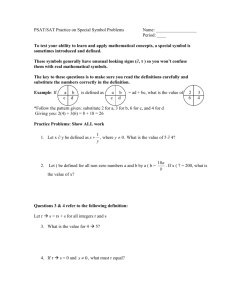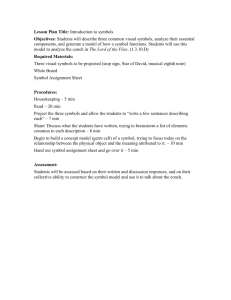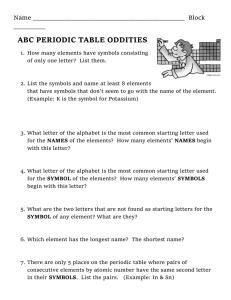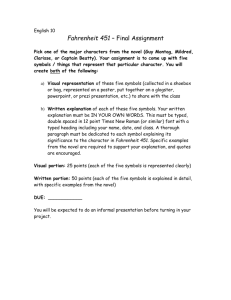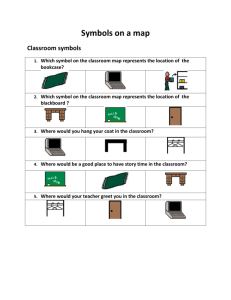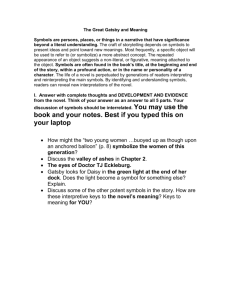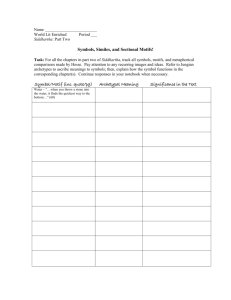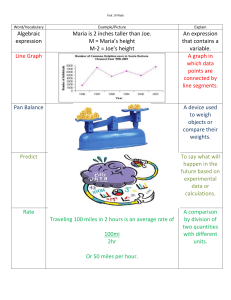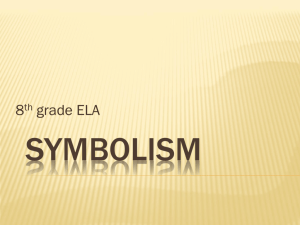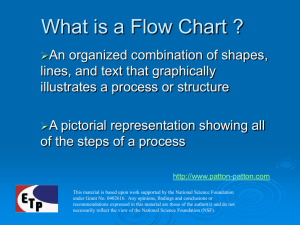Symbol and Allusion
advertisement
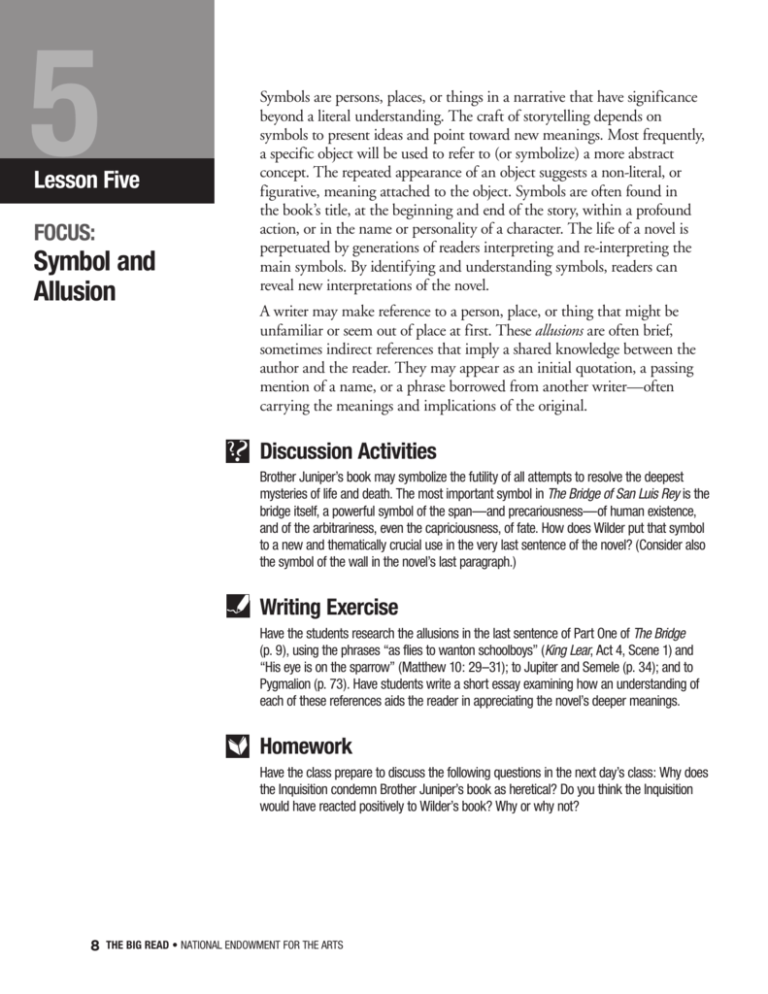
5 Symbols are persons, places, or things in a narrative that have significance beyond a literal understanding. The craft of storytelling depends on symbols to present ideas and point toward new meanings. Most frequently, a specific object will be used to refer to (or symbolize) a more abstract concept. The repeated appearance of an object suggests a non-literal, or figurative, meaning attached to the object. Symbols are often found in the book’s title, at the beginning and end of the story, within a profound action, or in the name or personality of a character. The life of a novel is perpetuated by generations of readers interpreting and re-interpreting the main symbols. By identifying and understanding symbols, readers can reveal new interpretations of the novel. Lesson Five FOCUS: Symbol and Allusion A writer may make reference to a person, place, or thing that might be unfamiliar or seem out of place at first. These allusions are often brief, sometimes indirect references that imply a shared knowledge between the author and the reader. They may appear as an initial quotation, a passing mention of a name, or a phrase borrowed from another writer—often carrying the meanings and implications of the original. ?? Discussion Activities Brother Juniper’s book may symbolize the futility of all attempts to resolve the deepest mysteries of life and death. The most important symbol in The Bridge of San Luis Rey is the bridge itself, a powerful symbol of the span—and precariousness—of human existence, and of the arbitrariness, even the capriciousness, of fate. How does Wilder put that symbol to a new and thematically crucial use in the very last sentence of the novel? (Consider also the symbol of the wall in the novel’s last paragraph.) ?? Writing Exercise Have the students research the allusions in the last sentence of Part One of The Bridge (p. 9), using the phrases “as flies to wanton schoolboys” (King Lear, Act 4, Scene 1) and “His eye is on the sparrow” (Matthew 10: 29–31); to Jupiter and Semele (p. 34); and to Pygmalion (p. 73). Have students write a short essay examining how an understanding of each of these references aids the reader in appreciating the novel’s deeper meanings. ?? Homework Have the class prepare to discuss the following questions in the next day’s class: Why does the Inquisition condemn Brother Juniper’s book as heretical? Do you think the Inquisition would have reacted positively to Wilder’s book? Why or why not? 8 THE BIG READ • NATIONAL ENDOWMENT FOR THE ARTS
